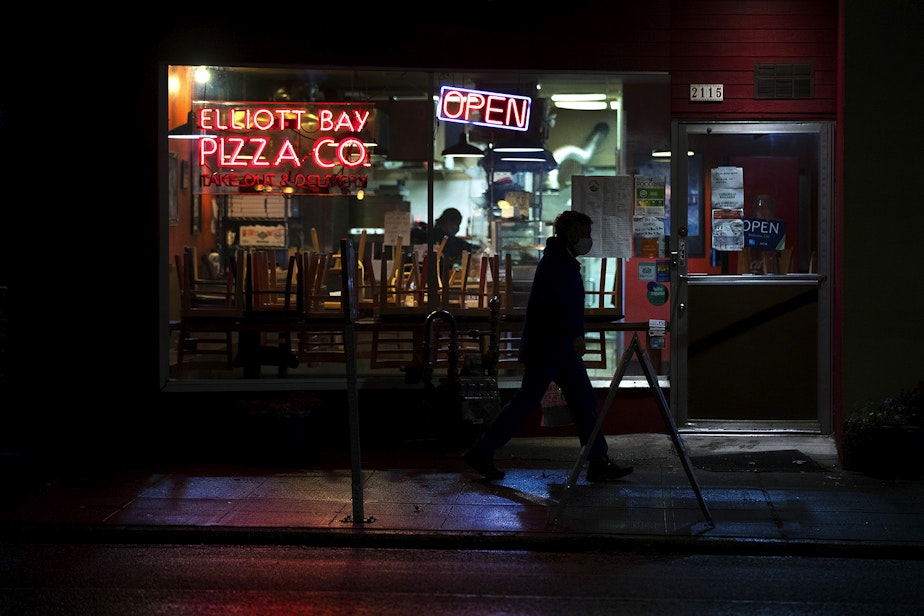Tips can't go toward Seattle's minimum wage after December. Restaurateurs, labor advocates clash over changes

Seattle’s practice of allowing businesses to apply customer tips toward employee wages and benefits will end in December. Small business owners say the new rules could lead to job loss and higher prices, while labor advocates argue the policy is a step in the right direction.
The city's tip credit, which allows some businesses to pay nearly $3 less than the city's minimum wage (currently $19.97) if hourly tips or benefits allotments could make up the difference, was a compromise negotiated in 2014 to help small businesses brace for a new minimum wage, coming in January.
Despite that decade-long preparation window, businesses are reeling from the decision.
RELATED: How Seattle restaurants plan to survive the $15 minimum wage, or not
“No one could have anticipated the impacts of a once-in-a-century global pandemic, followed by the highest inflation in half a century – not small business owners, not labor leaders, not elected officials," the Seattle Restaurant Alliance said in a written statement. "Claiming that small businesses ‘failed to prepare’ ignores reality and the stated assumptions of the deal itself."
Jeff Reading, a spokesperson for the Seattle Restaurant Alliance, noted that the federal government counts tips as wages.
Sponsored
“This is not a definition of wages that’s unprecedented or unreasonable or unfair,” Reading said.
Without the tip credit, Reading said, businesses will have to take drastic measures in response.
RELATED: How is Seattle's higher minimum wage affecting local restaurants?
“That includes increasing menu prices, reducing staff, and reducing hours and service,” he said.
Katie Garrow, executive secretary-treasurer of MLK Labor, a federation of union groups, said she’s sympathetic to the plight of small businesses. But she also noted that businesses had 10 years to prepare for the coming wage hike.
“A deal is a deal and to renege on that deal — where the losing end is some of the lowest paid, poorest working people in our economy — is unacceptable and contrary to Seattle’s values,” Garrow said.
RELATED: A year after buying a restaurant, how do you lay off 90 percent of your staff?
Sponsored
Seattle City Council member Joy Hollingworth had proposed extending the deadline but pulled back after labor groups protested.
In announcing the withdrawal, Hollingsworth said she will instead “lead a collaborative approach to discussions.”
The City Council still has time to revise the impending changes.




